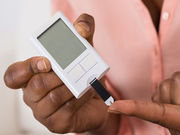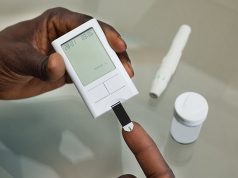However, significant improvement in LDL cholesterol seen in those with diabetes risk
WEDNESDAY, Oct. 5, 2016 (HealthDay News) — Weekly doses of vitamin D do not improve oral glucose tolerance or markers of glycemic status among those at risk for diabetes, according to a study published online Sept. 26 in Diabetes, Obesity and Metabolism.
Tracy S. Moreira-Lucas, Ph.D., from the University of Toronto, and colleagues conducted a 24-week randomized, placebo-controlled trial to study the effect of 28,000 IU of vitamin D3 once weekly on plasma glucose after a two-hour, 75-g oral glucose tolerance test (2hrPC glucose); insulin sensitivity; and beta-cell function. Of 71 participants with serum 5-hydroxyvitamin-D (25[OH]D) ≤65 nmol/L, impaired fasting glucose, and elevated glycated hemoglobin, 35 subjects received vitamin D and 36 received placebo.
The researchers found that serum 25(OH)D significantly increased in the vitamin D group. However, no significant differences in fasting or 2hPC glucose or other indices of glucose metabolism, including beta-cell function and insulin sensitivity, were seen. The results were similar in a subgroup analysis of individuals with 25(OH)D <50nmol/L and prediabetes. The vitamin D group did show a significant reduction in low-density lipoprotein cholesterol.
“Weekly doses of vitamin D3 in individuals with sub-optimal vitamin D and at risk for type 2 diabetes did not improve oral glucose tolerance or markers of glycemic status,” the authors write.
Abstract
Full Text (subscription or payment may be required)
Copyright © 2016 HealthDay. All rights reserved.








